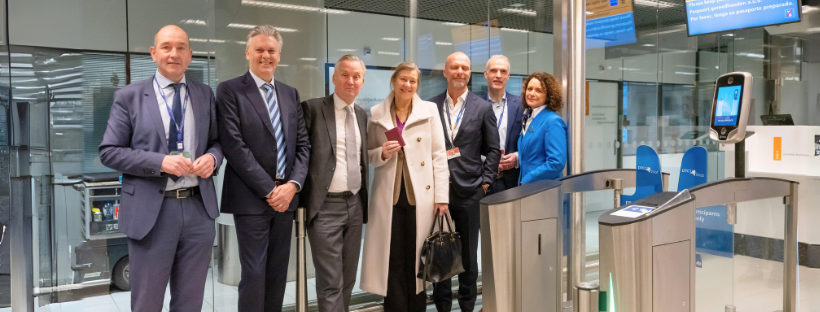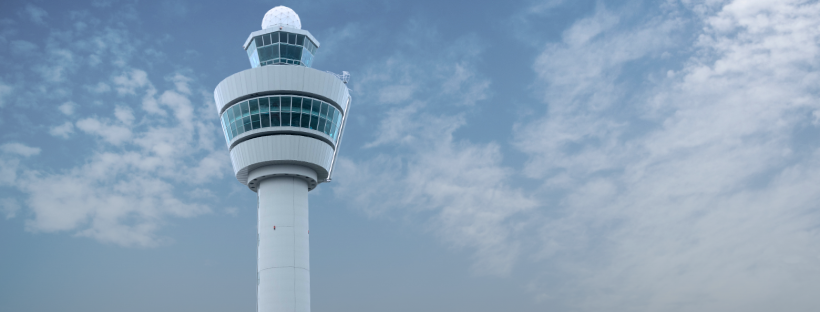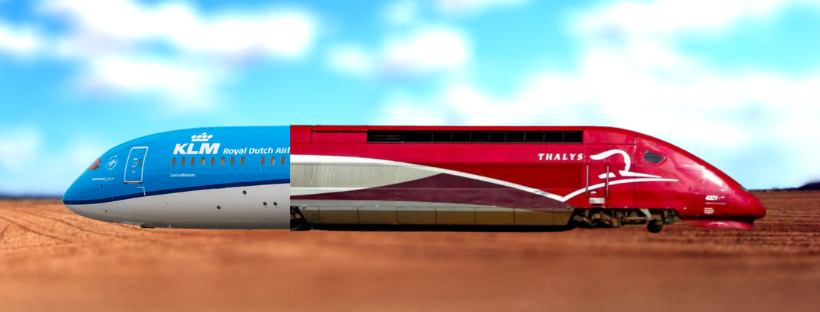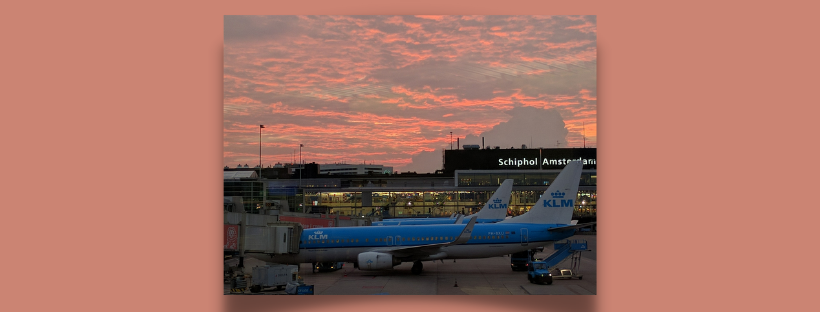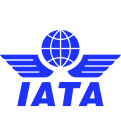KLM’s Digital Travel Credential: revolutionising border checks at Schiphol
This morning – 29 February 2024 – flight KL672 from Montreal touched down at Schiphol Airport, marking a significant milestone in travel technology. Passengers aboard this flight experienced the efficiency and convenience of the Digital Travel Credential (DTC) combined with Tap & Go technology, streamlining their journey through border checks.
The pilot project, running until 31 March 2024, aims to evaluate the effectiveness of DTC, a digital copy of passport information, alongside facial recognition technology at border control. Facilitated by the European Commission (EC), the initiative involves collaboration between the Dutch government, Amsterdam Airport Schiphol, KLM, and technology provider IDEMIA.
According to the EC’s request, the pilot project explores the practical application of DTC in the border process, aligning with the EU’s ongoing efforts to develop policies for digital travel documents. This could potentially revolutionize boarding and border control procedures in the future.
Passengers flying KLM from various Canadian cities to Amsterdam, including Calgary, Edmonton, Toronto, Vancouver, and Montreal, are invited to participate in the pilot project. Eligible participants, holding Belgian, Dutch, or Canadian passports and aged over 18, receive an invitation from KLM to join. They can upload their passport information and a facial photo via an app, enabling pre-arrival checks by border control authorities.
Upon arrival at Schiphol, participants proceed through a designated DTC Tap & Go border gate. A facial scan retrieves their DTC information, and passengers simply tap their passports against the gate reader. If the DTC matches the presented passport with no irregularities, crossing the border becomes seamless. Despite the digital advancements, physical passports are still required for this pilot project, aimed at expediting the border process for travellers.
With airports experiencing a surge in passenger numbers, there’s a growing need for innovative solutions to streamline security procedures.
Barry ter Voert, Chief Experience Officer and EVP Business Development at KLM, emphasised the airline’s commitment to enhancing the passenger journey. He states,
Digitisation provides an opportunity to make these checks faster and more efficient for our customers, starting from home.
KLM’s involvement in the trial conducted by the Dutch government underscores its dedication to improving services and sharing expertise in digital advancements.
The DTC1, endorsed by the International Civil Aviation Organization (ICAO), sets the standard for expedited border crossings. By combining DTC1 with biometric authentication, travellers can navigate borders swiftly and seamlessly. The DTC1 contains essential biographical information from the passport’s biographical page and technical elements to verify its authenticity.
Travellers simply tap their passport on a reader and proceed, showcasing the potential of digital innovation in simplifying travel processes.
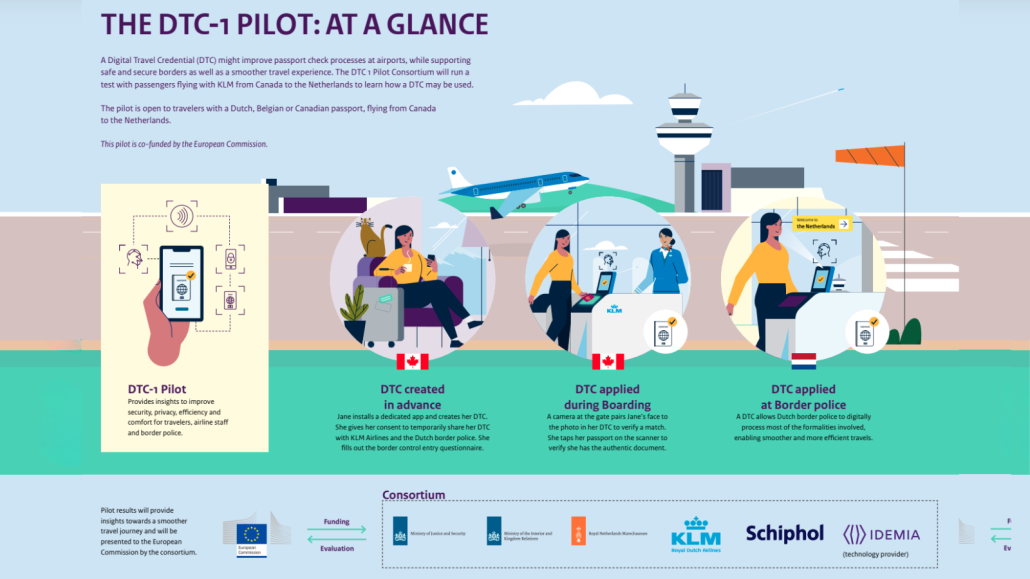
The Digital Travel Credential pilot project at Schiphol Airport marks a significant step towards modernizing border checks. As airports strive to cope with increasing passenger volumes, initiatives like DTC offer a glimpse into the future of seamless travel experiences.
For UK-based business travellers seeking further information on digital travel advancements and streamlined airport processes, contact your Global Travel Management Account Manager.

